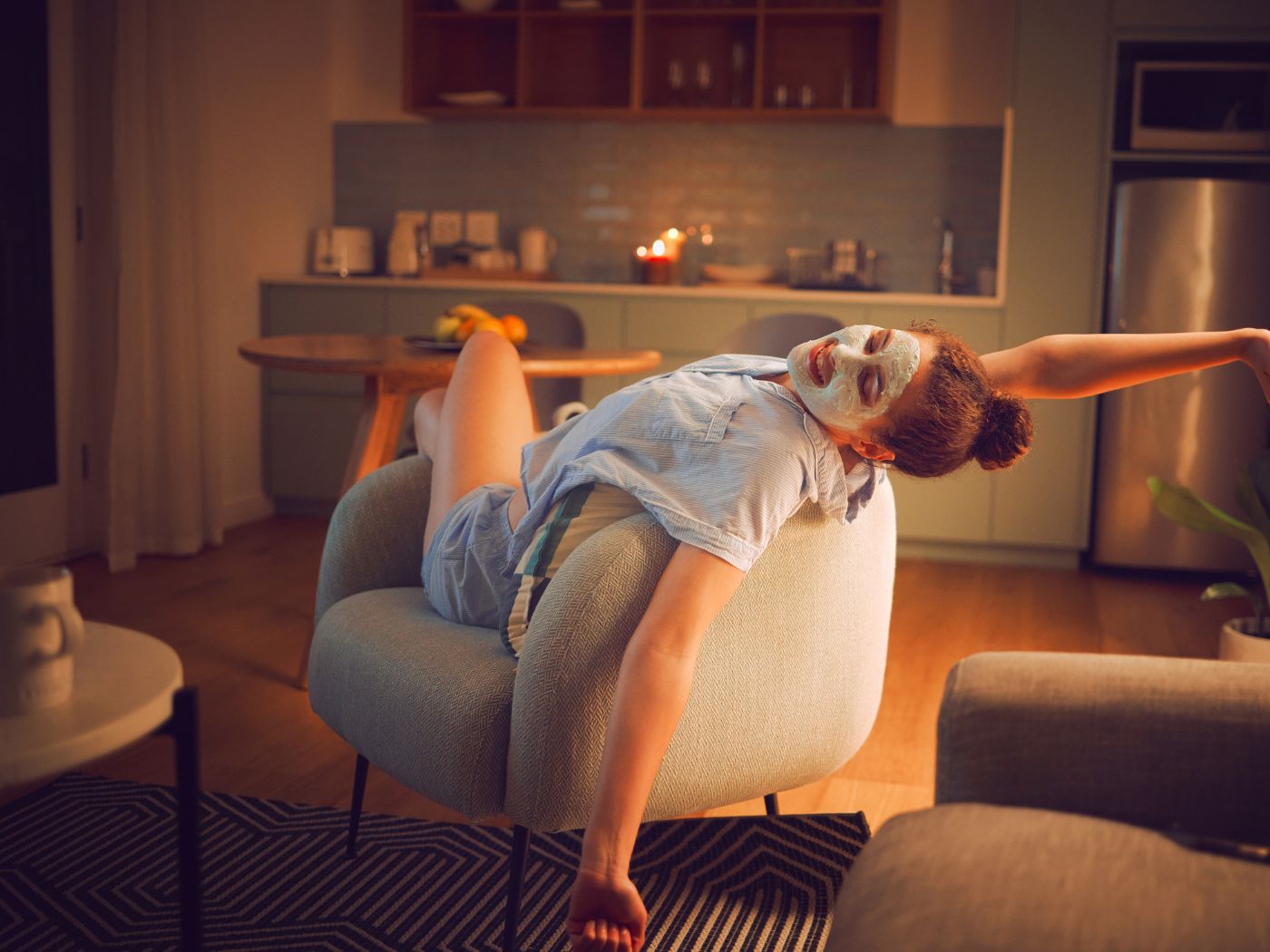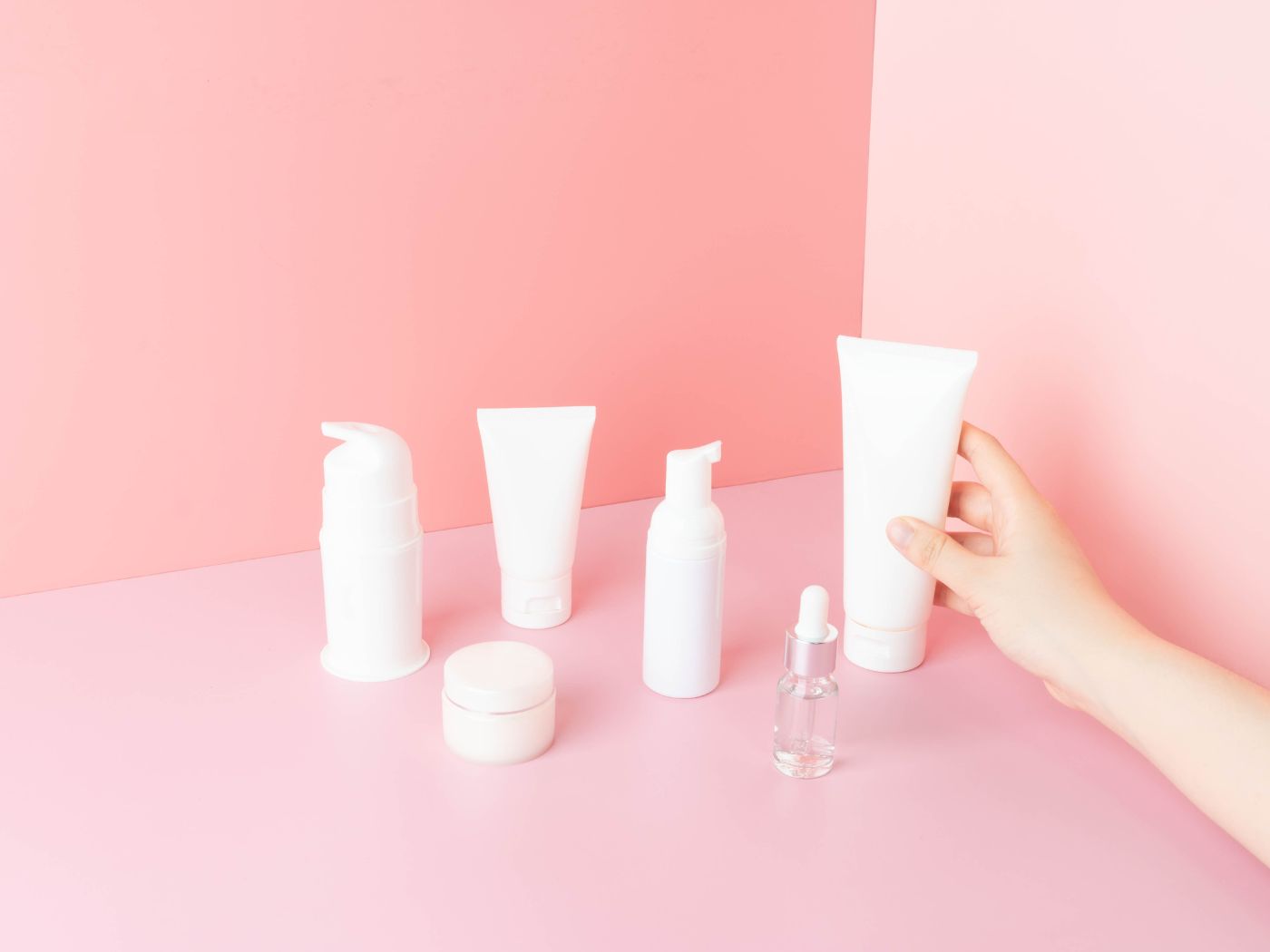- Understanding Night Creams
- Exploring Sleeping Masks
- Differences Between Night Creams And Sleeping Masks
- Choosing the Right Skincare Product For Your Skin
- FAQs
Your night skincare routine is as important as your day skincare routine if not more. Using products such as retinol serum, sleeping mask or night cream can help your skin stay younger-looking for a longer time. But which is better: night cream or a sleeping mask? Also, what are the benefits of night creams and sleeping masks for the skin?
Today, we will answer all the questions by comparing night creams and sleeping masks for skin care. We will also understand the unique properties of night cream and sleeping masks! So let’s begin shall we?
Understanding Night Creams
Before we go into nighttime skincare: cream vs mask, let’s first understand them individually. Night creams are specifically designed to be used during your nighttime skincare routine. They provide several benefits that are tailored to support the skin's repair and rejuvenation process while you sleep. Here's a breakdown of the key aspects and benefits of night cream:
-
Intense Hydration:
Night creams are typically formulated with richer textures and ingredients that deeply hydrate the skin. They focus on replenishing moisture levels and preventing water loss during the night, helping to combat dryness and promoting a plump, supple complexion.
-
Nourishment and Repair:
Night creams often contain a higher concentration of active ingredients like peptides, antioxidants, vitamins, and botanical extracts. These ingredients work to nourish and repair the skin, targeting specific concerns such as fine lines, wrinkles, uneven tone, or dullness. They assist in stimulating collagen production, promoting cell turnover, and enhancing the skin's natural regeneration process.
-
Recovery and Rejuvenation:
During sleep, the skin goes into repair mode. Night creams provide an additional boost to this process by providing essential nutrients and promoting skin rejuvenation. They can help to soothe and calm the skin, reduce redness and inflammation, and restore the skin's barrier function.
-
Retention of Ingredients:
Night time application allows for extended contact time with the skin, as there is no need to worry about sun exposure or the application of makeup. This allows the active ingredients in night creams to penetrate deeply into the skin, maximising their effectiveness.
-
Customised Formulations:
Night creams are available in various formulations catering to different skin types and concerns. Whether you have dry skin, oily skin, mature skin, or specific issues like acne or hyperpigmentation, there are night creams available to address your unique needs.
It's important to note that night creams are generally richer and thicker in texture compared to day creams or moisturisers. This is because they are designed to provide intense hydration and nourishment during the extended period of skin rest and repair overnight. Applying a night cream as the final step in your nighttime skincare routine helps create a protective barrier, sealing in moisture and allowing the cream to work its magic while you sleep.
Exploring Sleeping Masks
Sleeping masks, also known as overnight masks or sleep masks, are a type of skincare product that is designed to be applied before bed and left on the skin overnight. They provide intensive hydration, nourishment, and various other benefits while you sleep. Here are some benefits of sleeping masks:
-
Deep Hydration:
Sleeping masks are typically formulated with highly moisturising ingredients to deliver intense hydration to the skin. They often contain humectants like hyaluronic acid, glycerin, or ceramides that help attract and retain moisture, leaving the skin plump, smooth, and refreshed by morning.
-
Nourishment and Repair:
Sleeping masks often contain a blend of potent active ingredients such as vitamins, antioxidants, peptides, or botanical extracts. These ingredients work to nourish and repair the skin overnight, promoting cell turnover, improving texture, and addressing specific concerns like fine lines, dullness, or uneven tone.
-
Occlusive Barrier:
One of the key features of sleeping masks is their occlusive nature. The thick, gel-like or cream-like texture creates a physical barrier on the skin, helping to seal in moisture and prevent water loss throughout the night. This barrier effect allows the active ingredients to penetrate deeply and work more effectively.
-
Convenience and Ease of Use:
Sleeping masks are designed to be left on the skin overnight, eliminating the need for rinsing off or removal like traditional face masks. This makes them convenient and time-saving. Simply apply the mask as the final step in your nighttime skincare routine and leave it on while you sleep.
-
Enhanced Skin Care Benefits:
Sleeping masks can be used as an occasional or regular addition to your skincare routine, depending on your skin's needs. They can provide an extra boost of hydration and nourishment, enhance the effects of your other skincare products, and leave your skin looking refreshed and rejuvenated in the morning.
It's important to choose a sleeping mask that is suitable for your skin type and addresses your specific concerns. Some sleeping masks are focused on hydration, while others may target brightening, anti-ageing, or soothing effects.
Differences Between Night Creams And Sleeping Masks
Night creams and sleeping masks are both nighttime skincare products, but they differ in terms of formulation and purpose. Night creams have a cream or lotion texture and are massaged into the skin. They provide deep hydration and nourishment throughout the night. In contrast, sleeping masks have a gel or balm texture and are left on the skin overnight to form a protective barrier.
Night creams focus on intense hydration, often containing emollients and occlusives to lock in moisture. They address specific concerns like anti-ageing or brightening with targeted active ingredients. Sleeping masks prioritise hydration and nourishment while creating a sealing barrier to enhance ingredient absorption.
Night creams are used regularly in a nightly routine while sleeping masks are occasional treatments for intensified skincare. Night creams are versatile for different skin concerns while sleeping masks mainly offer hydration and revitalization.
In summary, night creams and sleeping masks have different textures, hydration intensity, targeted benefits, frequency of use, and application methods. Choosing between them depends on personal preferences and skincare needs. Some people may incorporate both products into their routine for comprehensive overnight skincare.
Choosing the Right Skincare Product For Your Skin
When deciding between a night cream and a sleeping mask for your skincare routine, consider the following factors:
-
Skin Concerns:
Assess your specific skin care needs. If you require intense hydration, nourishment, or targeted benefits like anti-ageing or brightening, a night cream may be suitable. If you primarily seek deep hydration and revitalization, a sleeping mask could be a better choice.
-
Texture and Application:
Consider your preference for product texture and application method. Night creams are typically massaged into the skin while sleeping masks are left on without absorption. Decide which texture and application process aligns better with your skincare routine and preferences.
-
Skin Sensitivity:
Take into account your skin's sensitivity. Some night creams or sleeping masks may contain ingredients that can potentially irritate sensitive skin. Ensure you select products with gentle formulations or consult with a dermatologist if you have concerns.
-
Frequency of Use:
Evaluate how frequently you want to incorporate the product into your routine. Night creams are typically used regularly while sleeping masks are often applied once or twice a week as a more occasional treatment.
If you are looking for a natural sleeping mask for your skin, we suggest you try the Pure Sense range of sleeping masks, all formulated from natural ingredients. These sleeping masks are designed to provide you with all-around nutrition while targeting specific skin problems.
Conclusion
We hope now you are clear about nighttime skincare: cream vs. mask and can make the right choice according to your skin requirements.
FAQs
-
Can I use a night cream and a sleeping mask together?
Yes, you can use a night cream and a sleeping mask together if desired. Apply the night cream first as part of your regular skincare routine, allowing it to absorb into the skin. Then, apply the sleeping mask as the final step, forming a barrier to seal in moisture and enhance the effectiveness of both products. -
How do night creams and sleeping masks work differently on the skin?
Night creams work by providing deep hydration, nourishment, and targeted benefits to the skin. They are typically formulated with moisturising ingredients and active compounds to address specific concerns while supporting the skin's repair and rejuvenation process throughout the night. On the other hand, sleeping masks create a sealing barrier on the skin's surface. They focus on intense hydration, often with a gel or balm texture, to prevent moisture loss and enhance ingredient absorption. The occlusive nature of sleeping masks allows the active ingredients to work more effectively overnight. -
Are night creams and sleeping masks suitable for all skin types?
Night creams and sleeping masks are generally suitable for most skin types. However, it's important to choose products that cater to your specific skin concerns and sensitivities. For example, individuals with oily or acne-prone skin may prefer lightweight, oil-free night creams or non-comedogenic sleeping masks. Those with sensitive skin should opt for products with gentle formulations and avoid any known irritants. -
Which one is more hydrating, a night cream or a sleeping mask?
Both night creams and sleeping masks provide hydration, but the level of hydration can vary depending on the specific formulation of the product. Night creams typically offer deep hydration as they are designed to provide nourishment and moisture throughout the night. They often have richer textures and incorporate moisturising ingredients to replenish the skin. Sleeping masks, while also providing hydration, focus on creating a sealing barrier to prevent moisture loss. The gel or balm-like texture helps to lock in hydration and enhance ingredient absorption.







